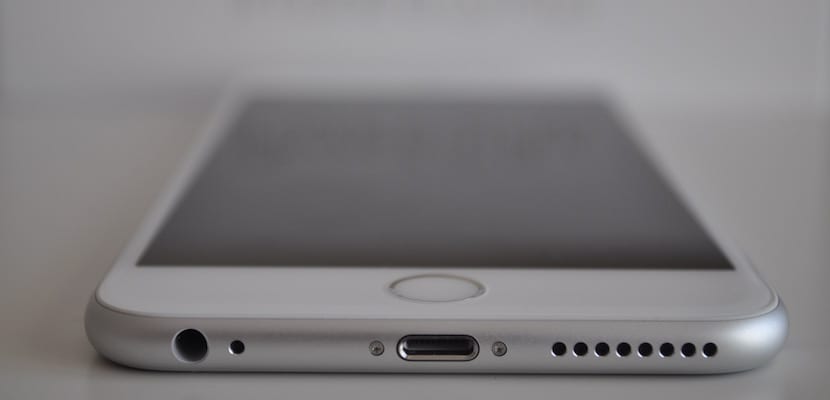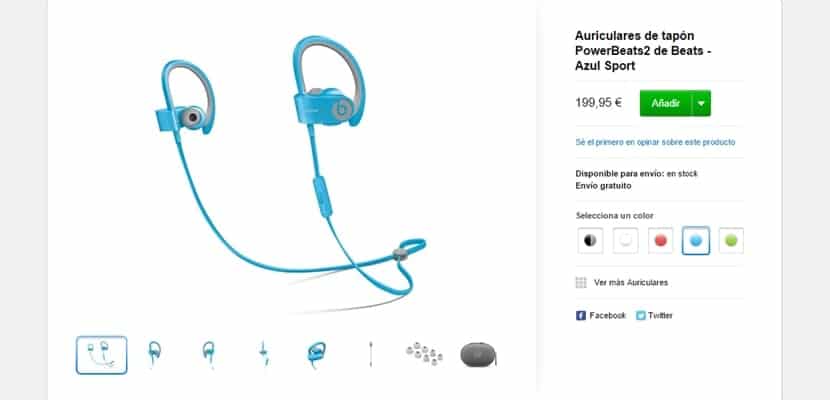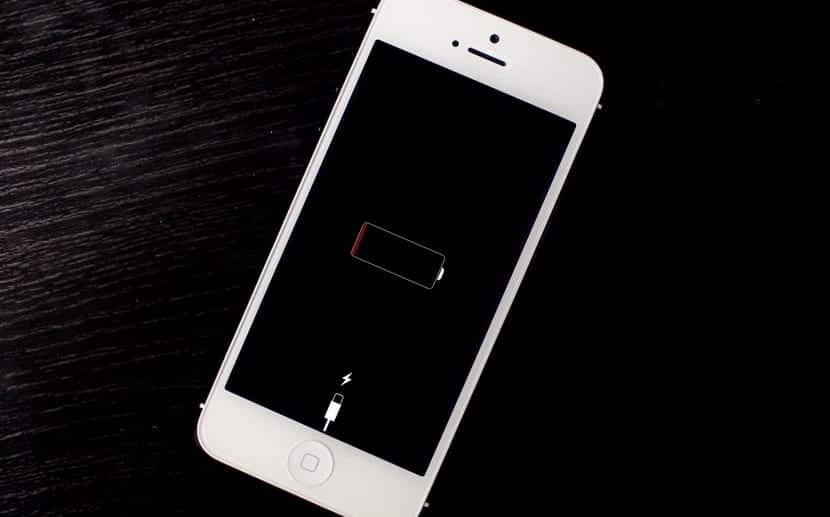
The latest rumors point to the possibility of an iPhone 7 without a headphone jack in order to get an even thinner device than the one we currently have. Nor do you think that it is much thinner, because only 1mm would be gained, although taking into account the thickness of current devices this is a considerable decrease. And it seems that the race to get the thinnest device on the market is a priority over other aspects, such as the battery. Where is the limit? Is it worth losing a universal connector like the 3,5mm jack to make a device that is already very thin even thinner?
Advantages of the Lightning connector

The advantages of the Lightning connector over the 3,5mm Jack in terms of sound quality are indisputable. Obviously dependent on the audio source the sound will go to our headphones without the need for conversion and with the same quality as in its origin. This means that if we use uncompressed files or music services like Tidal we will enjoy exceptional sound quality, obviously depending on the quality of the headphones. The traditional jack connector is a bottleneck that already causes a forced quality loss, although depending on the terminal we are talking about, it will be more or less noticeable.
But losing the jack connector means that we can only use headphones with a Lightning connector (in addition to those that use Bluetooth connectivity). We must therefore wait for manufacturers to bet on this option and compatible accessories appear. Phillips recently introduced its Fidelio with Lightning connector, but at the moment the available catalog is quite scarce. Sure Apple, if it made this decision, would update its Beats headphones to be compatible, but these are accessories that not everyone likes for their peculiar sound and that are out of the reach of many pockets.
Lightning, destined to disappear
The Lightning connector is relatively young, but despite Apple's obsession to the contrary, it will be a connector that will have to disappear sooner or later. In the European Union they have already set a specific date for all mobile devices to use the same connector, and it seems that USB-C will win the game. If the change occurs sooner or later, in the end the Lightning will disappear from iPhones and iPads and this means that headphones with this connection will be deprecated.
Yes, I know that many of you will think that there will always be the option of bring a small adapter that allows us to use conventional headphones with the Lightning or those that have a Lightning connection with the new connector when it arrives, but this will mean having to spend the money on a small piece that we will have to carry when we want to listen to music on the street.

Bluetooth headphones, the alternative that not everyone wants
As with most iPhone and iPad speakers, which abandoned physical connectors to switch to wireless technology (Bluetooth or Air Play), the headphones seem to follow the same path. The best way to ensure that your headphones will work for any device it seems is to buy them with Bluetooth connectivity. But this option comes at a price: the sound quality.
It is true that there are already headphones that take advantage of the latest Bluetooth technology to achieve optimal sound quality, but they are still below what can be achieved with headphones connected via cable. The most demanding still frown on wireless headphones, and they are also accessories with very high prices when we want them to have an optimal quality.
There are already precedents at Apple
The first thing that occurs to one when reading these rumors is that it is a filler news in a week with little movement, but the reality is that there are already precedents that indicate that this is perfectly possible. Apple has already abandoned CD / DVD drives when it seemed foolhardy to do so, and more recently launched a laptop with a single USB Type-C connection. In Cupertino they have their roadmap and seem to care little what others think. If you have now considered that the headphone jack is expendable, that headphone manufacturers prepare the new connectors because there will be no one who will make them turn back.

Good Luís, congratulations on your podcasts, very good!
Reading this post today after listening to your daily podcast today leaves you a little surprised, what limitations are those that make the jack bottleneck? It is used at the highest level in the entire world of sound, that I know what limits and can bottleneck is how you comment on the quality of the source (especially the dac that it carries) and of course the format and quality of music that you use, I'm a bit of a geek for this, I have almost my entire iTunes library in Apple Lossless Audio at maximum quality (songs about 50-60mb and about 1000kbps), the mb pro does bottleneck me, but another dedicated audio equipment Not that I use, and it shows a lot, the jack is the same, teams of many thousands of € have a jack for the headphone outputs.
Nor have I been clear about the advantages of lightning as an audio connector, if you can explain a bit about the subject because the truth is that I do not know its advantages, being lightning itself incapable of supporting analog signals.
Greetings to the Actualidad iPad team!
I'm scared to answer you after what you've put on it. I am not an audio expert and I also have one ear in front of the other, but all I read are the advantages of digital outputs compared to analog ones… Although it is true that the most purists still prefer analogue ones because they are more «faithful with reality".